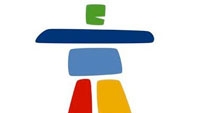NBC fights piracy of its Olympics coverage

After battling copyright violators for its coverage of the Beijing Olympics last summer, NBC Universal is back at it — this time preparing for a perhaps bigger fight at the Winter Olympics in Vancouver, Canada.
Canada, sensitive to the concerns, noted that it had passed an Olympics marks and trademarks act two years ago that covers the rights of broadcasters and sponsors. It also noted that the VANOC (Vancouver Organizing Committee) already has stringent provisions to protect broadcast rights during the games.
Canada’s weak copyright laws recently earned it a spot on the U.S. Trade Representative’s “priority watch list.” For this reason, the network is using extreme caution, warning that its protection during the games will be a “big challenge” for the Canadian government. NBC’s Olympic sponsors were also said to be unhappy about the weak copyright protection.
However, NBC, which paid $2 billion for the package of rights to the 2010 Winter Games and the 2012 Summer Games two years ago, has closely guarded its rights, fearing the worst in Canada.
From most reports, it did well on the copyright front with the Beijing games, with about 99 percent of U.S. viewers getting the 2200 streamed hours of Olympics coverage from NBC television or network-controlled Web sites.
NBC plans to closely follow that model with the Canadian games, which run from Feb. 12-28, 2010. Lawyers for the network vow to make it difficult for nonauthorized Web sites to carry NBC’s material. Also, a more sophisticated Web-based user verification system is reported to be in the works for the Vancouver games.
However, many viewers watching on the Internet don’t like to deal with time zone differences for Olympic events. They seek other Internet sources that are live, not caring that the content may be illegally transmitted.
Get the TV Tech Newsletter
The professional video industry's #1 source for news, trends and product and tech information. Sign up below.
Google’s YouTube pulled down copyright-infringing clips of the Beijing opening ceremony stolen from NBC. However, coverage of the same event from CCTV, the Chinese network, was easy to find. As for the games themselves, NBC and BBC videos appeared and disappeared frequently, so it was clear that YouTube had trouble keeping up with the illegal uploads.
Because most online coverage was locked to a geographic region, some viewers used a relay from a service like Tor and got live coverage from Eurovision TV. Some, locked out of NBC’s coverage, borrowed a zip code to get in. Others used a P2P TV device, which also got live coverage.
NBC is also faced with the issue of larger numbers of its audience migrating from traditional television to the Internet. Attempting to force major events to a time-shifted prime time model may no longer work, as the audience increasingly seeks live sources. This is one of the many obstacles the network faces in preparing for the Canadian games.
